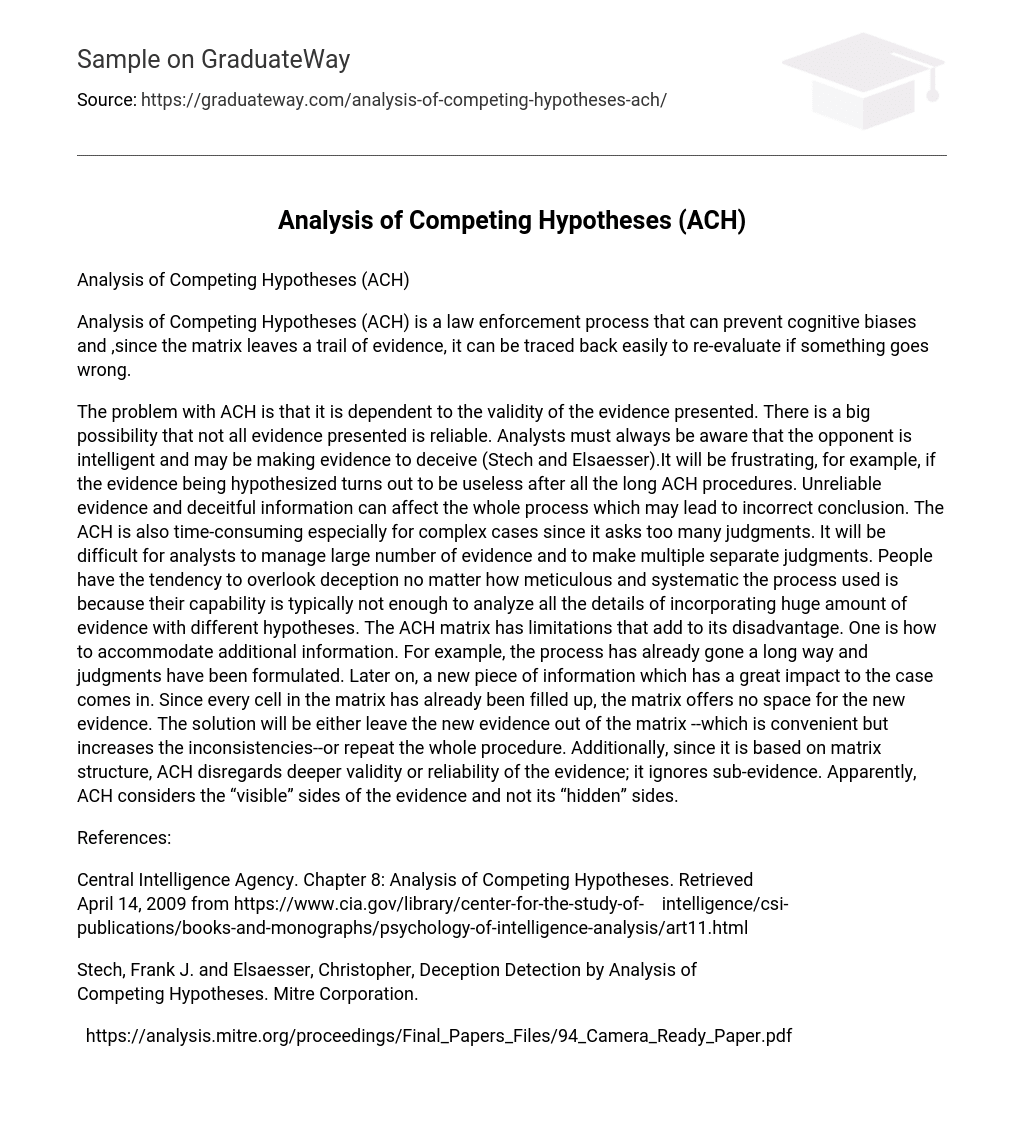Analysis of Competing Hypotheses (ACH) is a law enforcement process that can prevent cognitive biases and ,since the matrix leaves a trail of evidence, it can be traced back easily to re-evaluate if something goes wrong.
The problem with ACH is that it is dependent to the validity of the evidence presented. There is a big possibility that not all evidence presented is reliable. Analysts must always be aware that the opponent is intelligent and may be making evidence to deceive (Stech and Elsaesser).It will be frustrating, for example, if the evidence being hypothesized turns out to be useless after all the long ACH procedures. Unreliable evidence and deceitful information can affect the whole process which may lead to incorrect conclusion. The ACH is also time-consuming especially for complex cases since it asks too many judgments. It will be difficult for analysts to manage large number of evidence and to make multiple separate judgments. People have the tendency to overlook deception no matter how meticulous and systematic the process used is because their capability is typically not enough to analyze all the details of incorporating huge amount of evidence with different hypotheses. The ACH matrix has limitations that add to its disadvantage. One is how to accommodate additional information. For example, the process has already gone a long way and judgments have been formulated. Later on, a new piece of information which has a great impact to the case comes in. Since every cell in the matrix has already been filled up, the matrix offers no space for the new evidence. The solution will be either leave the new evidence out of the matrix –which is convenient but increases the inconsistencies–or repeat the whole procedure. Additionally, since it is based on matrix structure, ACH disregards deeper validity or reliability of the evidence; it ignores sub-evidence. Apparently, ACH considers the “visible” sides of the evidence and not its “hidden” sides.
References:
Central Intelligence Agency. Chapter 8: Analysis of Competing Hypotheses. Retrieved
April 14, 2009 from https://www.cia.gov/library/center-for-the-study-of- intelligence/csi-publications/books-and-monographs/psychology-of-intelligence-analysis/art11.html
Stech, Frank J. and Elsaesser, Christopher, Deception Detection by Analysis of
Competing Hypotheses. Mitre Corporation.
https://analysis.mitre.org/proceedings/Final_Papers_Files/94_Camera_Ready_Paper.pdf





